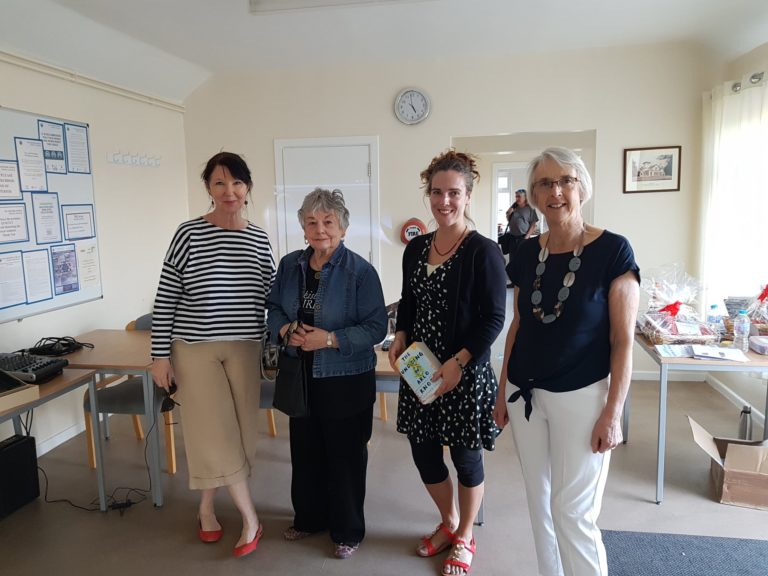A big welcome to Bristol Poet Sarer Scotthorne
Sarer is one of several writers who have contacted us since the publication of Unchained and is now a regular member of our group. Here she gives a revealing account of her work to date.

1) What am I working on?
The biggest project I am working on is editing a sequence of forty poems called “The Blood House” to send to publishers. It was the last piece of writing I did for my MA in Creative Writing. Being part of Bristol Women Writers has been invaluable. Their support and feedback is exceptionally useful in developing my editing and writing process. I have also started writing a new collection of poems about women in martial arts. I’m also doing some smaller projects called “Obeni”, where I write a poem and a photo/collage is created as a response by photographer Vernon White. Poet Paul Hawkins then writes a poem as a response to the image. Another project is a performance piece involving film, poetry and martial arts. Last but not least I run a beginners writing workshop for women in Bristol.
2) How does my work differ from others of its genre?
I don’t know of any other female poets writing about their experiences as a martial artist. I expect there are in China and I do intend to research this area.
I think my poems are the product of my experiences in life, they have a certain visual quality, (I have a BA Contemporary Arts) and could also be described as psychosexual. I often delve into the darkest recesses of the mind and write about the unwritable. I have just had one of my poems, Sunday Morning Words published in poetry journal The Interpreters House. I have been surprised at how troubling readers find the subject matter of this poem.
My poems cover many subject areas, including topics such as politics, war, sexual politics, martial arts, nature and family dynamics. I enjoy the way the quality of language shifts as I change the subject of area of my poetry.
3) Why do I write what I do?
I feel compelled to write. I wrote on my own for years and was never taught. I wanted to take my secret passion for writing further and see what I could get away with. I like writing about topics that people deny, such as sexuality, abuse and power structures. I like pushing boundaries, both in subject matter and in form. I try to challenge prejudice through my writing.
4) How does my writing process work?
I always carry a notebook around with me, and I scribble notes and drawings onto every inch of paper. I read poetry all the time, and I am very active in the contemporary poetry community of the South West and I like to get to London, Oxford, and Brighton to either read my own poetry, listen, write and participate in book fairs. I find it all very exciting and this stimulates and feeds my creativity. The next step is harder work; the editing. This can involve a lot of research, and I sometimes feel as though I have a compulsion to endlessly play with a set of words, which can go on for a year or more. It can seem like a puzzle that I need to be patient with and work out. As I get towards the end of the process I start to feel an immense sense of relief and satisfaction. This is where feedback is invaluable. I get feedback from some very accomplished poets, also Bristol Women Writers who are outstanding and have helped me with the final edits of some of my favourite poems. It is the greatest feeling to finish poems to a high standard and see them being published.
 Don’t forget you can catch up with Bristol Women Writers and some of our closest writing friends at the fabulous Thunderbolt Bristol for the monthly Word of Mouth slot on Wednesday May 7th. We’re looking forward to performing our work and meeting up with old and new friends. If you haven’t had the Thunderbolt experience, this could be the time to try it out.
Don’t forget you can catch up with Bristol Women Writers and some of our closest writing friends at the fabulous Thunderbolt Bristol for the monthly Word of Mouth slot on Wednesday May 7th. We’re looking forward to performing our work and meeting up with old and new friends. If you haven’t had the Thunderbolt experience, this could be the time to try it out.





